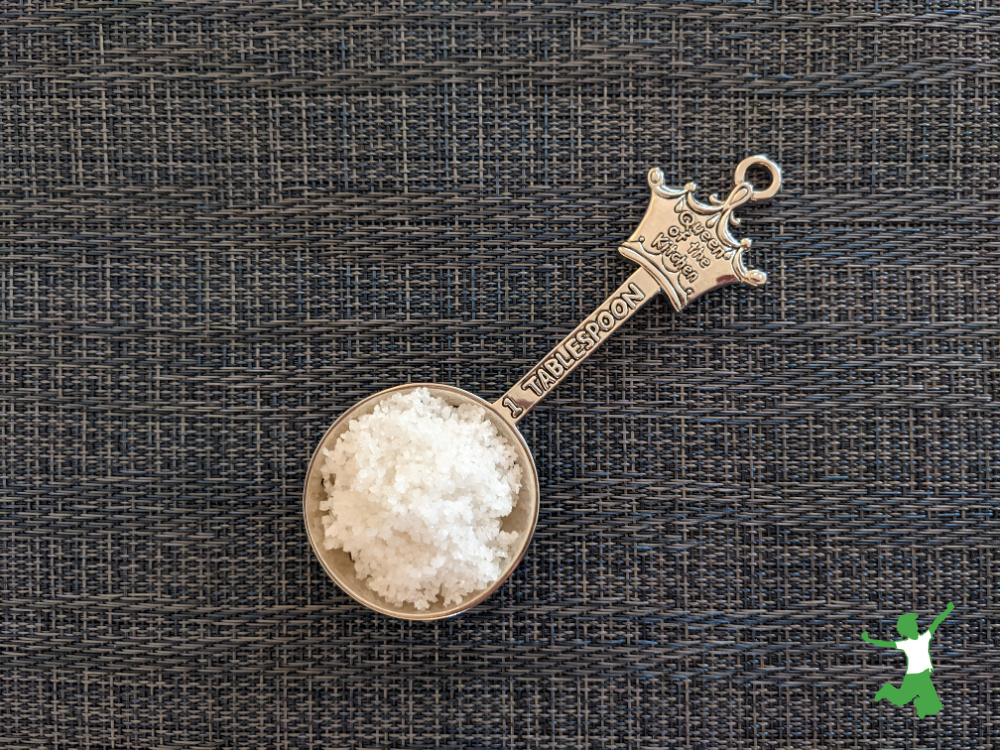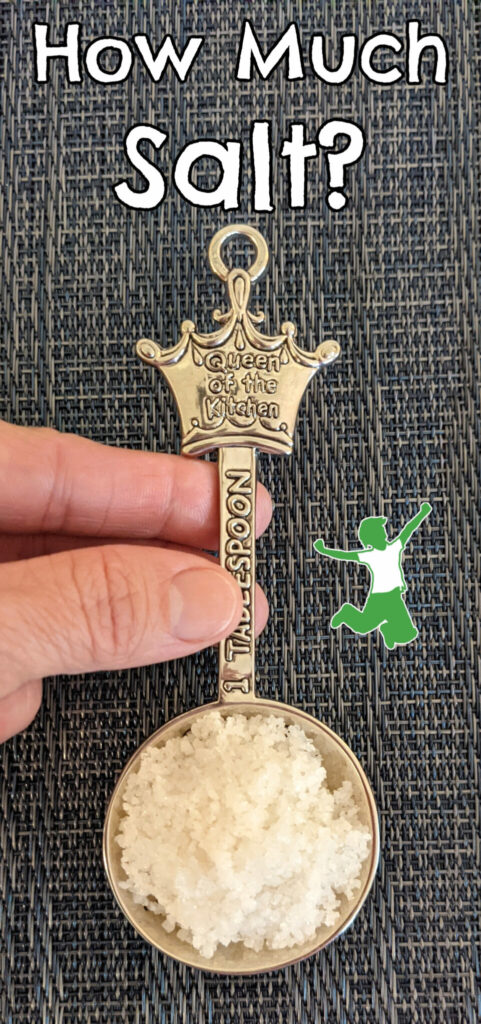The pseudoscience behind a low salt diet and why reducing sodium intake increases the risk of obesity, diabetes and a cardiovascular event.

“Mankind can live without gold … but not without Salt.” – Cassiodorus, Roman statesman, circa 500 AD
The FDA continues to recommend low salt diets, gradually moving toward the goal of 23o0 mg per day. This is despite strong evidence that a low sodium diet is not health-promoting and actually risks higher rates of disease and death.
Perhaps the FDA is attempting to usher in a modern manifestation of the ancient salt routes.
In the Dark and Medieval Ages, only the rich had enough salt. The peasants were unable to procure enough, and their health suffered greatly as a result.
Of course, the push to control the sodium content of food is cloaked in the argument that low salt diets are beneficial to health.
This is simply not so!
Low salt diets are flat-out harmful and there is plenty of research to back this up.
In fact, it is smart to use homemade sole water as an ionic supplement to ensure you are getting enough!
Research on Low Salt Diet Dangers
A compelling and large study that dismantles the sacred cow that salt is bad for you appeared in the Journal of the American Medical Association. (1)
3,681 healthy European men and women aged 60 or younger were followed for about 8 years.
Those that consumed higher than average amounts of sodium did not experience an increased risk for hypertension, stroke, or heart attack.
Dr. Jan Staessen MD, senior author of the study at the University of Leuven in Belgium stated that the study’s findings:
… do not support the current recommendations of a generalized and indiscriminate reduction of sodium intake at the population level.
Low Sodium Increases Disease and Death
It appears that it is much better to have a higher than average sodium intake than a lower one.
As published by the peer-reviewed Journal of the American Medical Association, even small decreases in sodium content in the diet increase the risk for a cardiovascular event and death.
The sodium levels adhered to in the JAMA study were based on USDA dietary guidelines.
Hence, people who follow low salt recommendations are at increased risk for a significant and possibly deadly health event!
The authors of the study wrote:
Taken together, our current findings refute the estimates of computer models of lives saved and healthcare costs reduced with lower salt intake. They also do not support the current recommendations of a generalized and indiscriminate reduction in salt intake at the population level. (2)
Dangers for Diabetics
Another study from Harvard University showed that participants developed insulin resistance in only 7 days when on a salt-restricted diet. (3)
Insulin resistance is an alarming condition that indicates a strong likelihood that Type 2 Diabetes will develop.
Similarly, Australian studies have shown that those individuals with Type 1 or Type 2 Diabetes die in larger numbers when following a salt-restricted diet.
From a common-sense point of view, a review of these studies indicates that low salt intake is a particularly risky path for those with blood sugar control issues.
Given that 80% or so of adults over the age of 25 are already overweight or obese in the United States, FDA restrictions on salt content in food could put the majority of the population at considerable risk for early death.
Salt Replacement Risks
The very clear danger of any FDA-mandated reduction in the salt content of foods is that manufacturers will increase the amount of MSG to compensate for the loss of flavor.
This has been Big Food’s typical response to government calls for reduced sodium since the 1970s.
It appears, however, that food manufacturers have another favorite food additive that they use to stealthily replace sodium.
Senomyx Dirty Little Secret
The salt substitute of choice for Big Food is called Senomyx. It is so potent and requires such tiny amounts that it doesn’t even need FDA approval.
According to the Weston A. Price Foundation:
The Senomyx salt substitute is clearly a chemical product that works in the body as a neurological agent, causing an individual to perceive a salty taste. It would seem to be nothing more or less than a neurotrophic drug.
Because the maker of the Senomyx product calls it a food, their salt substitute does not require the extensive testing that would be required by the FDA if it were called a pharmaceutical.
To our knowledge, there has been no testing of the Senomyx salt substitute for safety, and it is so potent that the amount needed in food is below the amount requiring FDA approval. (4)
Most consumers are unaware that Senomyx widely uses aborted fetal cells in their flavor manufacturing. (5)
Besides this undisclosed ethical issue, the use of Senomyx, which tastes salty but does not satisfy the body’s biological need for salt, threatens consumers with even more weight issues!
This is because appetite does not sufficiently abate until enough salt is consumed.
Hungry all the time? Perhaps you are not getting enough salt!
In short, people continue to eat and eat until their bodies get sufficient salt regardless of what level the FDA might ordain. (6)
Which Salt is Best?
Obviously, people would do well to avoid refined or iodized salt for the same reasons as any other processed food.
Unrefined sea salt containing dozens of important trace minerals is the best type to source as part of a healthy diet.
Due to microplastic pollution found in sea salt in recent years, it is a good idea to make sure yours is tested for purity.
My preferred sea salt brand is this brand from the Sea of Cortez which is tested to be free of contaminants and microplastics. Use coupon HealthyHome10 for 10% off if you’d like to try it!
Sea of Cortez sea salt (“Baja Gold”) also contains the highest amount of trace minerals of any sea salt in the world (no other sea salt is even close).
If you’ve been afraid of too much salt in the past, it’s time to stop worrying. Your body NEEDS salt!
Objective studies show that low salt diets do more harm than good. The view that “salt is bad” is substantiated only by junk science.

(1-2) Fatal and nonfatal outcomes, incidence of hypertension, and blood pressure changes in relation to urinary sodium excretion
(3) Low-salt diet increases insulin resistance in healthy subjects
(4) The Salt of The Earth
(5) Hidden Food Ingredients
(6) Caustic Commentary Summer 2022








I agree with this article (and I have the Baja salt), but I’m looking for a specific recommended daily amount. I even searched the Weston A. Price Web site and couldn’t find a specific number. For an adult who weighs, say, 120 pounds, about how much healthy salt per day is needed? A teaspoon or so? 🤔
Hi Sarah,
I purchased a 5lb bag of the Baja Gold you recommended above. When I opened the bag I got a huge whiff of a “chemical smell”. My other salts do not smell like that. I’m wondering if you have ever encountered the same smell? I’m going to email the company and ask why the strange smell.
I’ve been buying this salt for years (including the 5# bags) and never smelled anything like that!
Have you perhaps had covid recently? A lingering problem some people have after covid for quite some time is smelling chemical smells that aren’t there.
This is such an important subject, so I posting this link on why salt might be bad?
https://nutritionfacts.org/video/the-evidence-that-salt-raises-blood-pressure/
Just like most other things, it is difficult to ascertain which represents the best knowledge. The body absolutely needs sodium from foods. Does it also require salt? Please watch the video above which seems to have a very convincing argument as well.
If you’re going to sprinkle salt directly onto food, only take a pinch, a lot can your face quite puffy even with unrefined salt, you still need to take it in reasonable amounts.
I love a lot of salt, never enough of it. But, for the people with a low blood pressure (like my father) it is not advisable to consume. Only in limited amount :/
Why would salt be dangerous for those with low blood pressure?